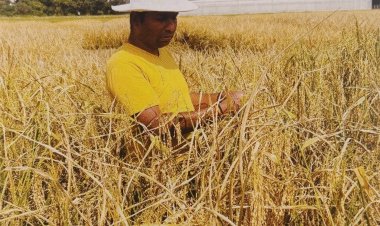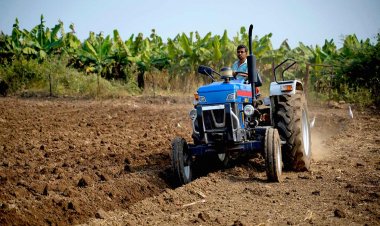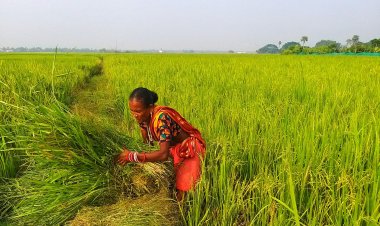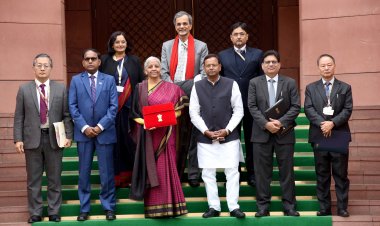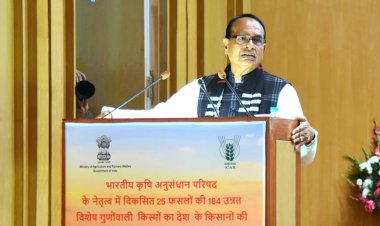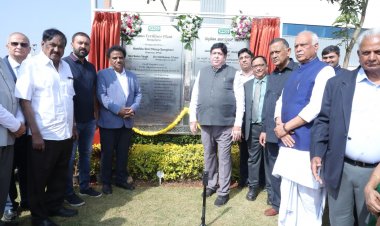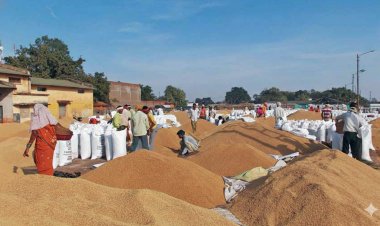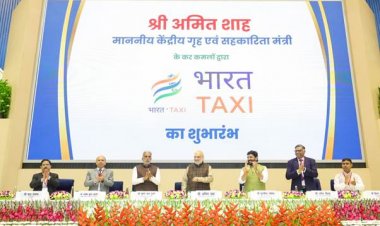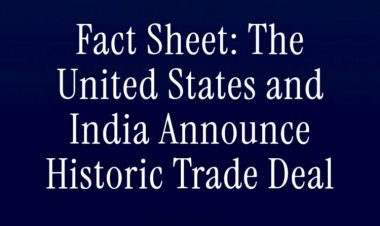NO Certainty In Getting TRIPS Waiver Sought By India for Covid-19 Medicines
Covid-19 has triggered a huge demand for medical products which is unlikely to decline soon. But in many countries, supplies have often not been able to keep pace with the growing demand. The waiver proposal from India and South Africa, therefore, makes a case for these medical products to be treated as global public goods and for creating an enabling environment for their production.
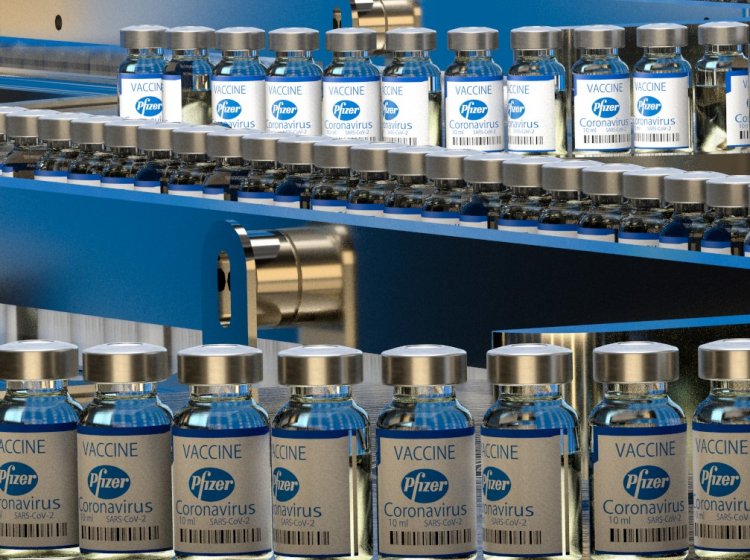
Access to medicines at prices that the patients can afford has been a recurrent concern for the global community ever since the Agreement on Trade-Related Aspects of Intellectual Property (TRIPS) was adopted as one of the covered agreements under the World Trade Organization (WTO). The TRIPS Agreement is a charter for strengthening intellectual property rights (IPRs) and, over the past 25 years, there have been instances galore where holders of intellectual property have exercised their rights to extract exorbitant rents from the users of proprietary products. Possibly the most glaring of such examples was the exceptionally high prices that several large pharmaceutical companies had charged after the onset of HIV/AIDS, the last major pandemic that had worldwide ramifications. Response against such excessive rent-seeking came from the developing countries, led by India, South Africa, and Brazil, who proposed that additional flexibilities must be incorporated in the TRIPS Agreement enabling WTO member countries to address public health concerns. The TRIPS Agreement and Public Health proposal was backed by 60 developing countries, including 41 belonging to the African Group, before it was adopted at the Doha Ministerial Conference in 2001.
The Covid-19 pandemic once again brought a similar response from India and South Africa. The two countries tabled a joint proposal in October 2020 which has subsequently been co-sponsored by 61 members, including the African Group and the Least Developed Countries (LDCs) Group, and has the support of more than two-thirds of the members of the WTO.
The proposal, which is before the TRIPS Council, seeks waiver from certain obligations under the TRIPS Agreement in relation to “health products and technologies including diagnostics, therapeutics, vaccines, medical devices, personal protective equipment, their materials or components, and their methods and means of manufacture for the prevention, treatment or containment of Covid-19”. Using the provisions of Article IX of the Marrakesh Agreement that established the WTO, the proposal makes a request to the General Council of the WTO to waive for three years the implementation, application and enforcement of four forms of IPRs covered by the TRIPS Agreement. These forms of IPRs mentioned in the proposal are: copyright and related rights, industrial designs, patents, and trade secrets, for the containment or treatment of Covid-19. It should be noted here that the waiver of legal obligations under the WTO agreement is not new. Since 1995, nine waivers have been granted and, of these, three have been from TRIPS obligations.
Significance of the waiver proposal
One significant question that arises here is the following: What are the advantages of the waiver proposal in addition to the existing flexibilities in the TRIPS Agreement to address public health exigencies? The first major benefit is that while the existing flexibilities address public health concerns arising from the exercise of patent rights over medicines, the waiver proposal covers all medical products, including diagnostics, therapeutics, vaccines and medical equipment, required exclusively for preventing the spread of the virus and curing the humanity of it. In other words, the waiver proposal does not seek a waiver of Members’ obligations with regard to IPRs on all other medical products.
In order to effectively respond to the Covid pandemic, a wide range of medical products have become absolutely essential. Many of these products, including their parts and components, are often proprietary items; they are protected through various forms of IPRs, mainly copyrights, trademarks, industrial designs, and patents. Each of these forms poses challenges to the mass production of these products. For instance, copyrights on the software source codes of diagnostic platforms can adversely affect their large-scale production, thus increasing the cost of diagnostics for the patients. A similar limitation can arise if industrial designs are used to protect medical products or their components.
Trade secret laws came into prominence after global pharmaceutical companies insisted on using them to protect their clinical trials’ data generated prior to obtaining marketing approval of proprietary medicines. The companies have sought enforcement of such laws in all WTO member countries in order to prevent regulatory agencies from using their data for approving generic versions of the medicines. The TRIPS Agreement does not require member countries to do so; it only mandates that regulatory agencies must protect clinical trials’ data against “unfair commercial use”. A waiver from the application of trade secrets would allow regulatory agencies to use some of this data in the public interest and to facilitate prompt entry of generic medicines in the market.
The process of producing Covid vaccines has brought forth several instances where companies have not allowed critical information about the safety and efficacy of their products to be put in the public domain. An editorial in a recent edition of the Nature magazine has revealed that “a worryingly high number of people around the world” have said that they would not get inoculated. This would keep them exposed to Covid and would delay the end of the pandemic. The factors driving people to reject the vaccines include “concerns about approvals being rushed, suspicion of the pharmaceutical industry and a pandemic of vaccine misinformation” that “are combining to erode the public’s trust in the process by which vaccines are approved for use” (https://www.nature.com/articles/d41586-020-02738-y). The concerns in the minds of the public at large can be put to rest if authorities do not allow safety and efficacy data for Covid-related medical products to be treated as trade secrets.
Covid-19 has triggered a huge demand for medical products which is unlikely to decline soon if the current predictions about the pandemic are any indicator. But in many countries, supplies have often not been able to keep pace with the growing demand. There is, therefore, a case for these medical products to be treated as global public goods and for creating an enabling environment for their production by both private and state-owned enterprises. However, in most developing countries, adequate public funding and access to appropriate technologies have both been seriously inadequate for facilitating production and ensuring the availability of these medical products to meet the burgeoning demand. As always, IPRs have often been an impediment to the transfer of technology and know-how.
Countries like India are facing certain limitations in accessing technologies for producing vaccines and medicines for Covid-19, including Remdesivir and Tocilizumab. A few Indian companies were granted voluntary licences for manufacturing Remdesivir by the originator company, Gilead Sciences, but these have two limitations: one, the prices at which the product is currently available in India are relatively high, and two, the medicine cannot be exported to other countries. A waiver from the application of patent provisions of the TRIPS agreement would enable the availability of the Covid medicines at affordable prices as a patent monopoly can then give way to a competitive marketplace.
Future of the waiver proposal
As mentioned earlier, the waiver proposal has received support from 61 WTO members thus far. However, a small but influential set of countries, most of whom are driven by the interests of their pharmaceutical companies, opposed the proposal. Prominent among those that had opposed the waiver proposal were Australia, Brazil, Canada, the European Union, Japan, Norway, the Republic of Korea, Singapore, Switzerland, the UK and the US. In early May, the US extended its support to the waiver proposal and offered to “actively participate in text-based negotiations” for finding a solution. But the support was not an unconditional one: the Biden-Harris Administration agreed to waive the IPRs only for vaccines and not for medicines and other medical products that the sponsors have been seeking.
Although the US support for the waiving of IPRs on Covid-related vaccines has raised considerable optimism on the future prospects of the waiver proposal, the dynamics around the proposal have, however, not changed much. Except Australia, none of the other countries have retracted from their earlier held positions. China and Russia, the more important producers of Covid vaccines, backed the waiver proposal. China supported “efforts devoted to the issue of vaccine accessibility”, expressing its willingness to engage in “active and constructive discussions among all parties within the framework of the WTO in a bid to achieve an effective and balanced result”. China also indicated that it would “unswervingly continue its efforts in making Covid vaccines a public good, and make contributions to improving vaccine accessibility and affordability in developing countries” (https://www.fmprc.gov.cn/ce/cgmb/eng/fyrth/t1873782.htm). According to President Putin, the “idea … to remove patent protections from vaccines against Covid-19 altogether” deserved attention and that “Russia would of course support such an approach” (https://newsaf.cgtn.com/news/2021-05-07/Putin-backs-Russia-waiving-patents-on-its-COVID-vaccines-103m35Qy98s/index.html).
Last week, there were positive signals from the WTO membership on the waiver proposal. At the formal meeting of the TRIPS Council on June 8-9, members decided that they would begin “text-based negotiations” on the proposal. The formal decision in this regard could be taken in the General Council meeting scheduled on July 21-22.
Clearly, the support that China, Russia, and the US have lent to the waiver proposal is not enough to ensure that a decision on the waiver proposal can be reached soon. One of the major factors that could delay the decision on the proposal is the process of “text-based negotiations”. In the past, such negotiations, including those related to the Doha Declaration on TRIPS and Public Health that addressed affordable access to medicines pertaining to the HIV/AIDS pandemic, were also quite long-drawn.
However, the present situation is an exceptional one as there is no time to lose. Each member of the global community is desperately looking forward to having access to vaccines and medicines at affordable prices, which is the only way that a post-Covid world can become a reality. By now, it is clear to every member of the WTO that unless everyone is safe, no one is safe. An expedited decision on the waiver proposal is possible only if this adage drives the ensuing “text-based negotiations” in Geneva.
Finally, in a member-driver multilateral system, effective coalitions are vital for norm-setting. Developing countries understand this well since they have benefited by adopting this strategy in the past. It is also a fact that such coalitions have relied on effective leadership, which India and South Africa have provided in the past. At this critical juncture for humanity, the two countries must ensure that their important joint initiative realizes the desired objectives.
(Dr Biswajit Dhar is a Professor at Centre for Economic Studies and Planning, School of Social Sciences, Jawaharlal Nehru University)



 Join the RuralVoice whatsapp group
Join the RuralVoice whatsapp group

















